Dandruff and flakiness are extremely common issues found among most people. Now this problem doesn’t need you to be a certain age. It can occur to anyone at any point in time. This is why it is difficult to find a permanent solution for how to control dandruff. Dandruff can be a real pain as it leads to itchiness and dirt all around you. It is problematic in terms of hygiene too.
Those troublesome white pieces on a shrewd dark dress can put off anyone! Dandruff is a minor but extremely bothersome issue that can quickly ruin a happy occasion. It is an itchy, dry scalp condition that affects both men and women and is brought on by the fungus Malassezia.
Dandruff may be caused by a variety of factors, including dry skin, seborrheic dermatitis, sensitivity to hair products, and the growth of a specific type of fungus that lives on your scalp. Although there are numerous over-the-counter (OTC) products designed to treat dandruff, natural remedies are frequently just as effective. Some reports estimate that this condition affects up to 42% of infants and 1–3% of adults worldwide.
While many of us use an anti-dandruff shampoo to get rid of our dandruff, did you know that there are many simple home remedies you can use to help? Yes, dandruff can be treated at home with great success!
But before we get into the nitty-gritty of how to control dandruff, let us first look at what are the causes of the pestering white flakes.
What Causes Dandruff?
It is often said that we should think like our enemy to get to their roots. Guess who’s the enemy here? You’re right! It’s stubborn dandruff. Thus, to find out the right solution to this problem, you need to know what is causing it. Here are some of the tested and researched causes of dandruff:
1. Seborrheic Dermatitis:
Also called the oily skin horror. This condition can occur due to the fungus names Malassezia, which feeds on excess oil that’s present on the skin or scalp.
2. Dry Skin:
People having dry skin are predisposed to dandruff.
3. Unhygienic Scalp:
Poor hygiene of the scalp also adds to dandruff and white flakes that you see on your head. Washing hair regularly along with a few hygienic measures can prevent this from happening.
4. Pollution And Heat:
The country is falling under the poor air quality category term after term. There is hardly any improvement in the air quality ad pollution levels. In such cases, making sure that you are less exposed to pollution becomes important. Also, make sure you keep your head clean and cold. Excessive heat can also lead to stubborn dandruff.
5. Unhealthy Diet:
Whenever we talk about anything related to our bodies, be it our scalp or our feet, it has some direct or indirect relation with the food we intake. Thus, maintaining a healthy diet is of utmost eminence
How To Control Dandruff At Home?
Drugstore shampoos and corticosteroids, as well as natural remedies like baking soda and tea tree oil, can be used to try to get rid of dandruff. Here are a few home remedies to know how to control dandruff in winter and how to control dandruff generally.
1. Baking Soda:

Baking soda, a simple and noble ingredient, can be an effective treatment for dandruff. Simply dampen your hair and apply a small amount of baking soda to your scalp. Rub with vigor. After working out, give your hair a quick rinse but don’t shampoo it. After a few sessions, your hair feels dry at first. However, over time, your scalp will begin to produce natural oils, giving your hair a softer appearance and eliminating dry flakes.
2. Yogurt:
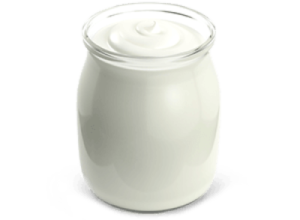
An itchy scalp can also be soothed by eating a bowl of fresh yogurt. Simply shampoo your hair, apply the yogurt, and allow it to rest for about 15 minutes. Use water to rinse, then use a small amount of your usual shampoo to wash it again. Because yogurt is rich in beneficial bacteria, it aids in the prevention of scalp flaking. Since black pepper also has antifungal properties, you can add it to the yogurt.
More: Benefits of Yogurt
3. Aspirin:
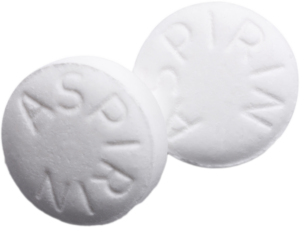
Dandruff can be significantly reduced with the help of readily available Aspirin. Make a fine powder by crushing two Aspirin and adding it to your regular shampoo. Use this mixture to shampoo your hair, then rinse it out after two to three minutes. Aspirin’s salicylic acid aids in the effective treatment of dandruff.
4. Fuller’s Earth:
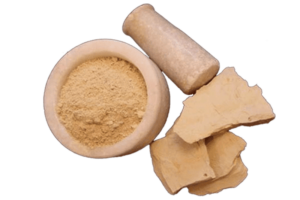
Oil, grease, and dust can be absorbed by Fuller’s Earth. The spread of dandruff is exacerbated by each of these factors. Fuller’s Earth also aids in blood circulation, which aids in the prevention of dandruff on the scalp. Simply combine a good amount of Fuller’s Earth with water to create a smooth paste to use on your scalp. The paste can benefit from a few drops of lemon juice. Use this mixture to apply to your hair. After letting it soak in for about 20 minutes, wash it off with regular water.
5. Lemon:
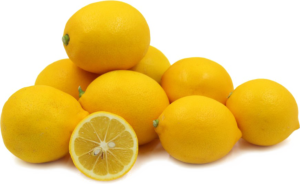
Of all of them, this is by far the easiest! Massage the juice of a full lemon into your scalp. After two to three minutes, rinse it off with regular shampoo. Additionally, you can use lemon juice in a cup of water as the final rinse after washing your hair. Keep doing it until dandruff goes away. Lemon’s acidic nature helps maintain a healthy pH in your hair.
6. Aloe Vera:
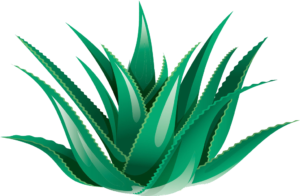
Aloe Vera has a soothing and hydrating effect on the skin. It alleviates dandruff and reduces flakiness and itching. Because it is antibacterial and antifungal, it also prevents dandruff. Apply aloe vera gel to your scalp directly and let it sit for about 30 minutes. Later, shampoo your hair lightly.
7. Organic Coconut Oil:
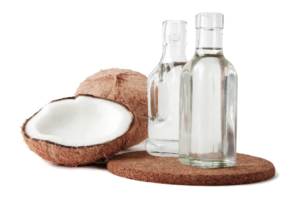
Dandruff is often prevented with organic coconut oil. It keeps our scalp hydrated and prevents dryness and flakiness, both of which can make dandruff worse. Additionally, it has antifungal and antimicrobial properties. Apply organic coconut oil to the scalp with a light massage, let it sit for a few hours, and then rinse with a mild shampoo.
8. Neem:
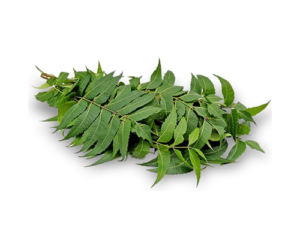
Neem’s antifungal, antimicrobial, and anti-inflammatory properties aid in dandruff treatment and prevention. For dandruff prevention, neem oil can be applied to the scalp and left on for a few hours, or you can use it to make a hair mask. Make a paste of the ground neem leaves for the hair mask, then apply it to the scalp for 15 to 20 minutes with a mild shampoo. You can also rinse your hair with a few boiled neem leaves and water.
The Bottom Line:
Despite the difficulty of dealing with dandruff, a number of natural remedies may alleviate symptoms and provide relief. Try a few of the aforementioned natural remedies the next time you notice flakes on your scalp to support a healthy scalp and naturally reduce dandruff. Consult a dermatologist to determine whether additional treatments are required to provide lasting relief if these methods fail.
See More:
- Keratin Treatment: We All Must Know the Truth
- Dry Scalp or Dandruff: Who’s the Culprit In Real Life?
- Almond Oil For Hair
- Tea Tree Oil: The Perfect Goodness Beyond Skincare

